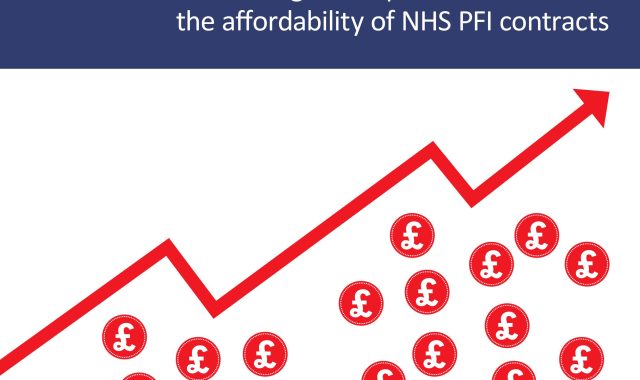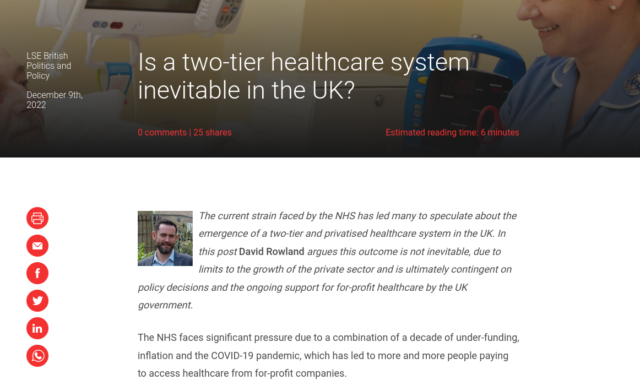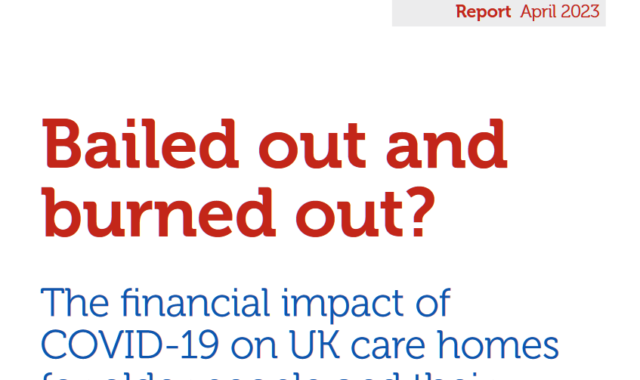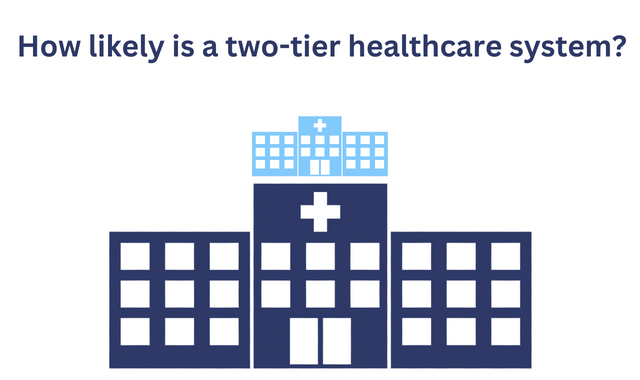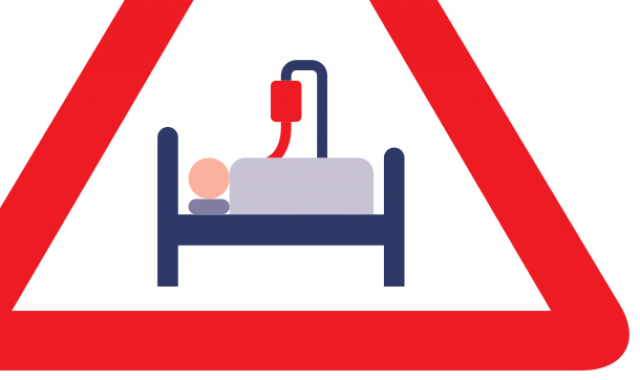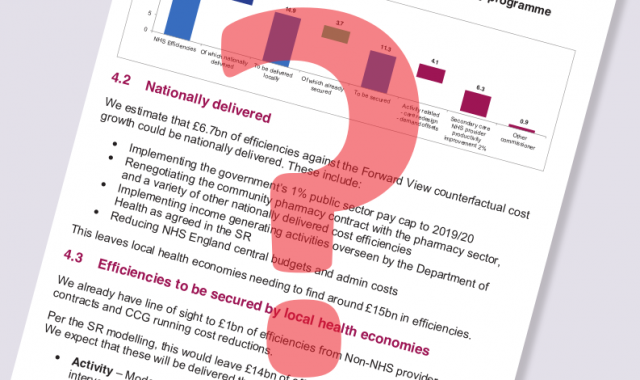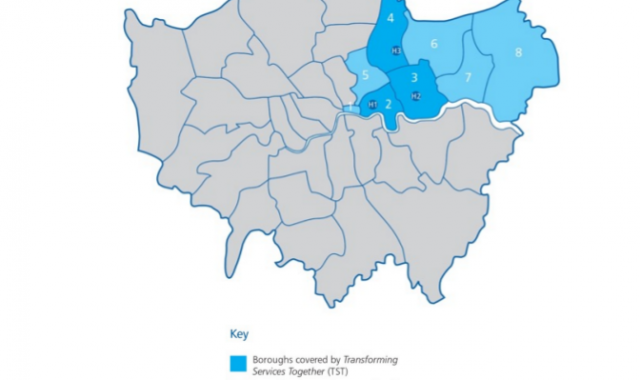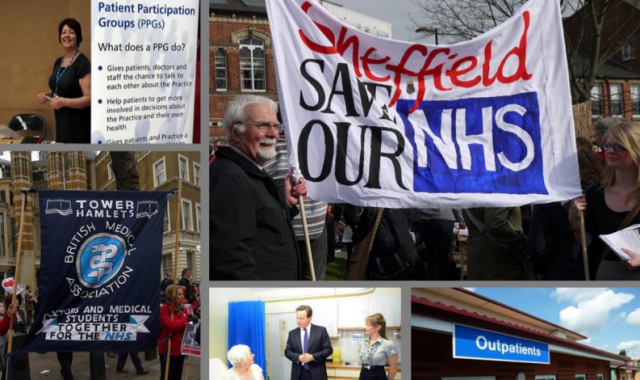This briefing note forms part of our wider study into the outsourcing of NHS eye care services to the private sector.
Read MoreThis briefing note forms part of our wider study into the outsourcing of NHS eye care services to the private sector.
Read MoreThis report analyses the contractual mechanisms of NHSE’s £2bn+ deal with the private hospital sector during COVID, building on our 2021 report ‘For Whose Benefit’ using newly obtained activity data and the contracts themselves.
Read MoreNew report shows the significant impact of inflation on NHS Trusts with PFI schemes, with large profits and dividend payments continuing to be made by PFI companies.
Read MoreThis report presents the views of England’s Directors of Public Health on the latest reforms to public health.
Read MoreDavid Rowland considers the contingent role of government policy.
Read MoreA two year study examining the financial impacts of the pandemic on UK care homes for older people and their staff.
Read MoreIn this briefing, David Rowland unpacks the background and policy landscape creating increased concerns for the healthcare system in the UK.
Read MoreThis report analyses the government’s use of the private hospital sector to alleviate the burden on the NHS during the first year of the COVID pandemic.
Read MoreThis analysis maps the network of joint venture businesses between NHS medical consultants and private healthcare companies.
Read MoreThis report finds that reforms made to the NHS following the Health and Social Care Act of 2012 have impacted upon its ability to deal effectively with a possible flu pandemic.
Read MoreThis report looks into how the private hospital sector uses financial incentives to attract NHS consultants to work for them.
Read MoreThis report analyses the financing structure of the new Private Finance 2 scheme and finds that it is likely to increase costs to the NHS. Restructuring the balance of debt and risk capital would increase the rate of return to private investors by 15% compared to the original Private Finance Initiative.
Read MoreThis report analyses five options available to policy makers to address the problems caused by existing PFI schemes.
Read MoreToday the Centre for Health and the Public Interest publishes its evidence to the Inquiry into the actions of the convicted Breast Surgeon Ian Paterson.
Read MoreBased on evidence from an extensive review of CQC inspection reports of 177 private hospitals in England, this report identifies serious risks to patient safety in the current private hospital business model.
Read MoreThis report brings together what is known about patient safety in private hospitals. It offers new insights into the number of patient safety incidents in private hospitals, analyses the potential risks inherent in the way that these services operate, and makes recommendations to improve transparency in the private sector.
Read MoreThis report identifies where each pound that goes into the care home industry ends up by using a forensic study of the accounts of over 830 adult care home companies. If finds significant levels of leakage of money from front-line care, including to profit, rental bills and debt repayments.
Read MoreThis briefing summarises the key forces determining the price and availability of new medicines in the NHS.
Read MoreWe reflect on the controversy surrounding the case of Dr Hadiza Bawa-Garba, and the serious difficulties faced in finding the correct response when things go wrong in healthcare
Read MoreThis report uses findings from the Care Quality Commission’s new inspection regime for private hospitals to show that there continue to be risks to patient safety associated with the distinctive nature of private hospitals in England, compared with the NHS.
Read MoreIn this report, we look at the less-than-expected growth in NHS treatment of private patients since the 2012 Health and Social Care Act, and consider whether the practice has been an effective means of generating additional revenues, and how it might impact on the availability of care for NHS patients.
Read MoreThis analysis identifies five key questions to be asked of each of England’s 44 Sustainability and Transformation Plans.
Read MoreThis report looks at the significant profits made by PFI companies from NHS contracts over the last 6 years.
Read MoreThis briefing note shows that only by injecting a substantial amount of public funds into the care system will social care become a service which enhances the lives and independence of our older people. Capping care costs would benefit a relatively small number of people and would have little impact on either the quality or the availability of care.
Read MoreThis report raises questions about the capacity of the NHS to handle the increasing outsourcing of its services to the private sector and its ability to ensure that services provided by the private sector under contract with the NHS are safe, effective and value for money.
Read MoreThe June 2017 Conservative manifesto contained a statement which looks like marking the end of a long-running and highly charged debate about how healthcare should be delivered. So do we at CHPI feel vindicated?
Read MoreThe Appendix (technical notes) for Vivek Kotecha’s paper on STPs and whether they can deliver the NHS FYFV.
Read MoreThis note compares the main health policies in the 2017 election manifestos of the Conservative Party, the Labour Party and the Liberal Democratic Party.
Read MoreThe financial assumptions underpinning the Government’s plans to close the NHS’s 30-billion-pound funding gap by 2020/21 are unrealistic and are likely to lead to a decline in the quality of and access to healthcare for patients. Subsequently there is a growing risk that that some vital services will collapse.
Read MoreClosing A&E departments has led to a deterioration in the performance of those that remain in North West London. This analysis warns of the risk to patients if further A&Es are closed.
Read MoreThis analysis looks at how the concept of patient choice has worked in the NHS in recent years.
Read MoreThis analysis looks at four key arguments that have been made to justify the use of individual budgets for health and social care.
Read MoreThis analysis explores how the Health and Social Care Act 2012 has placed requirements on NHS commissioners to engage in both collaboration and competition.
Read MoreThis report warns that the introduction of greater use of for profit providers of healthcare services as a result of the 2012 Health and Social Care Act is likely to substantially increase the amount of healthcare fraud in the NHS.
Read MoreThis report reviews the changes proposed for ‘Transforming Services Together’ in Newham, Tower Hamlets and Waltham Forest as part of the North East London STP – assessing the impact on East London’s patients and whether the plan is likely to work.
Read MoreJohn Lister assesses the published drafts of the plans for implementing the Five Year Forward View published by NHS England in 2014.
Read MoreThis analysis looks at why the Sustainability and Transformation Fund is not sufficient to eliminate the providers’ deficit in 2016/17, and what the implications of its insufficiency are for providers who accept the funding, and for the NHS in general?
Read MoreThis analysis looks at the state of care for people with mental health problems today. It argues that the changes in the structure and scale of health services and benefits available to them has made treatment and recovery more difficult and that a changed cultural context has weakened society’s sense of obligation towards people with mental health problems.
Read MoreThis analysis argues that this Government’s NHS reform has created great uncertainty surrounding who makes health policy – raising important questions about who can or should decide the future of healthcare in England.
Read MoreThis briefing outlines concerns around the Care Bill during its passage through Parliament.
Read MoreThis report looks at how the market in social care services in England provides the best available example for policy makers of what happens to the quality of care and the terms and conditions of the care workforce when competitive pressures are used to bring about a reduction in the cost of care to the taxpayer.
Read MoreThis report describes the role that privatisation has played in the decline of the provision and quality of adult social care. It outlines a number of reforms which could help reverse the decline in the sector.
Read MorePublished by the House of Lords Select Committee on October 18th 2016
Read MoreHalting the rising number of suicides by mentally ill patients depends on action to secure adequate reporting.
Read MoreThis analysis asks how far the new Sustainability and Transformation Plans being drawn up by ‘local health economies’ or ‘footprints’ can be expected to overcome the impending financial crisis of the NHS. It also draws attention to the apparent lack of a legislative basis for the planning process, and a corresponding lack of transparency and accountability.
Read MoreThis analysis looks at the evidence showing that creating and maintaining markets in the NHS has incurred huge financial costs and significant ‘opportunity costs’ – money which could have spent upon patient care and clinical redesign. The analysis goes on to argue that it is possible for the NHS to offer patient choice and high-quality health-care without the market.
Read MoreThis opinion piece looks at why governments of all political hues are fixated on markets and competition and runs through the current state of the evidence around the limits to markets in health care.
Read MoreThis joint essay with Democratic Audit UK looks at the recent history of patient and public involvement in the NHS, and those elements of the health system lying outside the NHS.
Read More


